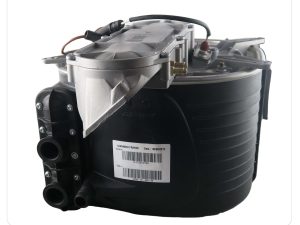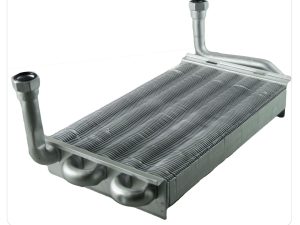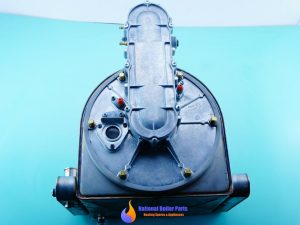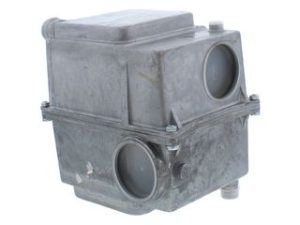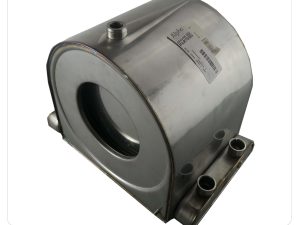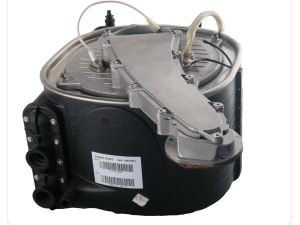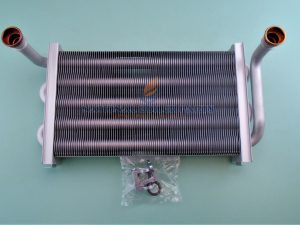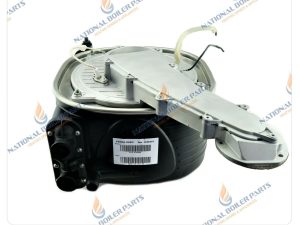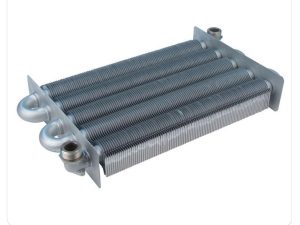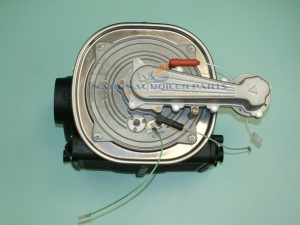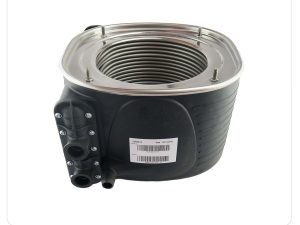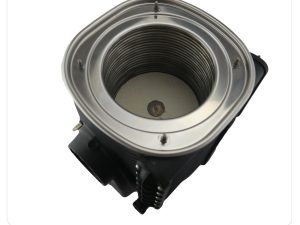At National Boiler Spares, whether you’re replacing a damaged heat exchanger or upgrading your system, our selection of high-quality heat exchangers guarantees durability and efficiency.
Boiler heat exchangers are critical components in any heating system, transferring heat from the combustion process to the water, ensuring efficient operation and consistent heat distribution. These heat exchangers work together with other system parts to maintain optimal performance, prevent energy loss, and provide reliable heating.
Worn or malfunctioning heat exchangers can lead to serious issues in your heating system. Common signs that a heat exchanger may need replacement include:
- Leaks or water dripping from the boiler
- Inconsistent heating or cold spots
- Unusual noises like hissing or banging
- Signs of corrosion or rust on the exchanger
Replacing faulty heat exchangers promptly is essential to ensure the safety, efficiency, and longevity of your boiler system.
Buy heat exchangers online
National Boiler Spares stock a wide range of boiler heat exchangers for many brands and manufacturers including Baxi, Worcester, Vaillant, Ideal, Glowworm and more. Try using our search bar above to find your specific boiler heat exchanger by parts or GC number with ease.
Why choose National Boiler Spares?
Here at National Boiler Spares, we are a trusted source of high-quality boiler spare parts and heating components to customers throughout the UK and beyond. Our comprehensive range of new brand genuine parts covers the latest and older model boilers, all available at the best possible prices online or over our trade counter. We work closely with our suppliers to ensure that we always have the latest and most innovative products available, and we are constantly expanding our boiler spares and parts range to meet the evolving needs of the industry.
Boiler heat exchanger – FAQs:
What is a heat exchanger in a boiler, and what does it do?
A heat exchanger in a boiler is a critical component that transfers heat from the combustion gases to the water. The heated water is then circulated throughout the heating system to radiators or taps. The heat exchanger ensures efficient energy transfer, providing hot water for heating or domestic use while keeping the combustion gases separate from the water.
What are the main parts of a heat exchanger?
The key parts of a boiler heat exchanger include:
- Tubing/Pipes: Where water flows through to absorb heat.
- Fins/Plates: Increase surface area for efficient heat transfer.
- Combustion Chamber: Where fuel is burned to generate heat.
- Inlet and Outlet Ports: Allow water to enter and exit the exchanger.
- Baffles (in some designs): Direct the flow of gases for better heat transfer.
Why do heat exchangers fail?
Common reasons for failure include:
- Corrosion from water quality issues.
- Cracks from overheating or stress.
- Scaling from mineral buildup.
- Poor maintenance, leading to degradation over time.
How can I test if the heat exchanger in a boiler is working?
To test if the heat exchanger in a boiler is working, follow these steps:
- Check the heat exchanger for any visible signs of leaks or corrosion.
- Monitor the temperature of the water entering and leaving the heat exchanger, using a thermometer.
- Check for unusual noises, such as banging or hissing, which could indicate issues like scaling or blockages.
- Inspect for soot or buildup on the surfaces. This can reduce efficiency and indicate that cleaning may be needed.
- Observe the overall heating performance. If the system struggles to heat water or maintain temperature, the heat exchanger may be compromised.
If you notice any issues during these tests, it may be time to consult a professional for further inspection or replacement.
How long do heat exchangers typically last?
A boiler heat exchanger usually lasts 10 to 20 years, depending on factors such as the type of boiler, maintenance practices, water quality, and overall usage. Regular inspections and proper maintenance can help extend their lifespan.
